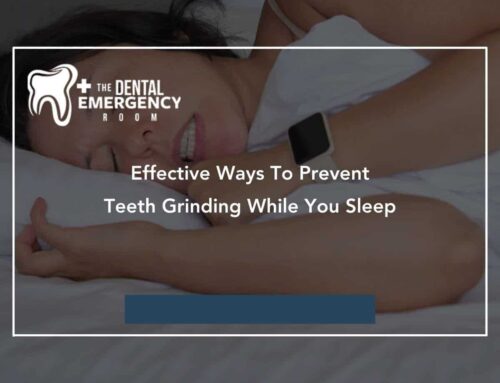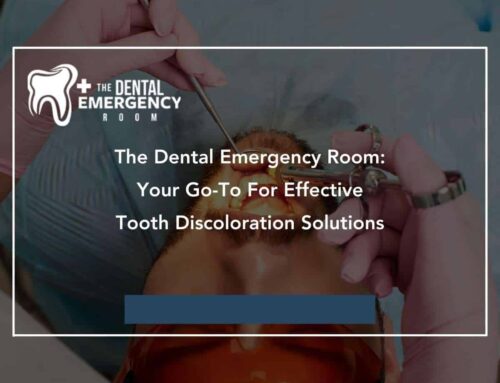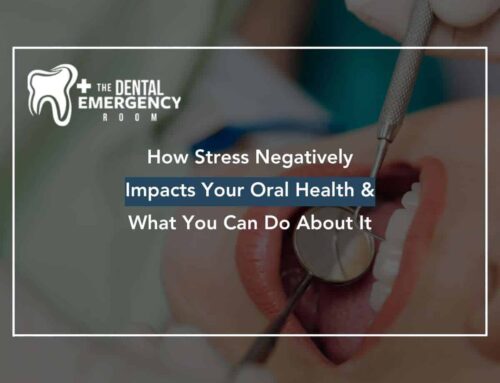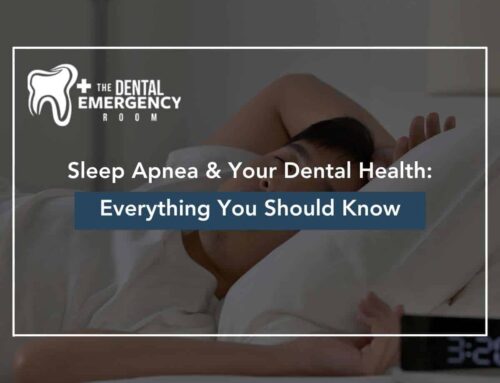How To Recognize Toothaches Early & Prevent Costly Complications
Toothaches may start as a mild discomfort, but they often escalate into severe pain that can disrupt your daily life. While some cases are caused by minor issues like food debris, most persistent or intense toothaches are a warning sign of something more serious beneath the surface. Understanding the root causes can help you take the right action early and avoid painful, costly complications!
Let’s explore the most common causes of toothaches, how to recognize them, and when it’s time to seek professional help.
1. Tooth Decay: The Silent Culprit

- Sensitivity to hot, cold, or sweet foods.
- Persistent aching or throbbing.
- Pain when chewing.
- Visible holes or dark spots on the teeth.
In addition to these symptoms, tooth decay is among the common reasons for tooth discoloration, which can affect the appearance of your smile.
It’s important to catch decay early before it leads to more serious issues like infections or tooth fractures. A Clearwater emergency dentist can remove the decayed area and fill the cavity to restore function and comfort.
2. Gum Disease & Its Lingering Effects
Gum disease, or periodontal disease, often begins as gingivitis—a mild inflammation of the gums caused by plaque and bacteria. If left untreated, it can progress to periodontitis, which affects the tissues and bone supporting your teeth.
The inflammation not only causes gum discomfort but can also trigger deep, radiating toothaches. People may notice swollen, red, or bleeding gums, loose teeth, gum recession, or persistent bad breath.
Treating gum disease early is essential to avoid tooth loss and chronic oral discomfort. Deep cleaning, also known as scaling and root planing, is often used to remove the bacteria and restore gum health.
3. Cracked or Broken Teeth: Hidden Damage That Hurts
Cracks in teeth aren’t always visible, but they can lead to significant pain—especially when chewing or when exposed to temperature changes. These cracks can result from accidents, grinding your teeth, or biting something hard. In some cases, the crack reaches the inner pulp of the tooth, causing nerve exposure and intense dental pain.
Depending on the severity, your dentist might recommend:
- Dental bonding for minor cracks
- A crown to cover and protect the tooth
- A root canal if the pulp is damaged
When untreated, even small fractures can worsen over time, so prompt attention is key.
4. Dental Abscess: A Serious Infection
A dental abscess is an infection at the root of the tooth or in the gums, caused by bacteria entering through untreated cavities or trauma. This condition is not only painful but can also affect the appearance of your teeth. In some cases, infections and abscesses may also lead to discoloration, which should be addressed promptly.
People with a dental abscess often experience throbbing pain that may radiate to the jaw, ear, or neck, facial swelling, sensitivity to pressure or temperature, and swollen lymph nodes.
Because this is a serious dental emergency, immediate treatment is necessary. This typically involves draining the abscess, antibiotics, and possibly a root canal or tooth extraction.
While waiting to see a dentist, there are ways to ease discomfort. According to the NHS, you can:
- Take painkillers like ibuprofen or paracetamol (children under 16 should not take aspirin).
- Eat soft foods such as soup, scrambled eggs, mashed potatoes, or yogurt.
- Use a soft-bristled toothbrush to clean your teeth.
- Avoid sugary, very hot, or very cold foods and drinks.
These measures can help reduce pain temporarily until proper dental treatment is received.
5. Tooth Sensitivity & Enamel Erosion
Tooth sensitivity is a frequent cause of short, sharp pain when consuming hot, cold, or sweet foods and drinks. This happens when enamel—the tooth’s protective outer layer—wears down or when gums recede, exposing sensitive dentin beneath.
For example, factors that contribute to enamel erosion often include brushing too hard or using a hard-bristled toothbrush, regularly consuming acidic foods and drinks, and grinding your teeth, a condition known as bruxism.
Dentists can provide fluoride treatments and recommend desensitizing toothpastes or even bonding agents to help reduce discomfort and protect exposed areas.
6. Impacted Wisdom Teeth
Wisdom teeth often emerge during the late teens or early twenties. For many, they cause no issues, but in some cases, they don’t have enough space to fully erupt and become impacted. This can lead to swelling, pressure, jaw stiffness, or pain in the back of the mouth.
When wisdom teeth are impacted, they can also crowd nearby teeth or become infected. Removal is usually the best course of action. For urgent care, an emergency dentist near Largo, FL, can evaluate the need for an extraction and provide relief.
7. Bruxism (Teeth Grinding)
Grinding or clenching your teeth—especially during sleep—is known as bruxism. Over time, it can wear down enamel, cause micro-fractures in the teeth, and strain the jaw muscles, all of which can result in discomfort or pain.
According to the Mayo Clinic, people who grind their teeth at night are more likely to experience other sleep disorders, such as snoring or pauses in breathing known as sleep apnea. Many individuals don’t even realize they have nighttime bruxism until they start experiencing dental problems or jaw pain.
Common signs of bruxism include jaw soreness or tightness, morning headaches, clicking or popping sounds in the jaw, and worn or flattened tooth surfaces.
A personalized nightguard can help protect your teeth and reduce strain on your jaw. In more severe cases, stress management techniques or physical therapy may be recommended to alleviate symptoms.
8. Tooth Discoloration & Pain
Tooth discoloration is often considered a cosmetic concern, but in some cases, it may signal underlying issues such as trauma or infection. For example, a gray or darkened tooth can indicate nerve damage after an injury, which might eventually lead to pain or an abscess.
It’s important to understand the different reasons behind stained teeth. While surface stains from coffee or tobacco are generally harmless, deeper discoloration may require a dental exam to determine if whitening or further treatment is needed.
Understanding the causes of stained teeth helps ensure both the appearance and health of your smile!
When Is a Toothache an Emergency? Signs You Need Urgent Dental Care

- Pain lasting more than 48 hours.
- Swelling in the gums, face, or jaw.
- Fever accompanying tooth pain.
- A knocked-out or broken tooth.
For situations like these, finding an emergency dental clinic in Clearwater is critical to avoid permanent damage and ensure fast relief. Infections can spread quickly and affect your overall health, so don’t delay.
Schedule Emergency Dental Care at The Dental Emergency Room Today
If you’re experiencing ongoing tooth pain or notice any of the warning signs mentioned above, it’s time to take action. Emergency dentistry is about fast, effective, and compassionate care, and that’s exactly what you’ll find at The Dental Emergency Room.
We specialize in diagnosing and treating a wide range of dental emergencies in a caring and professional environment. Contact us today!
Dental Emergency Room
1935 Drew Street,
Clearwater, Florida 33765
Phone: 727-449-2424









Leave A Comment